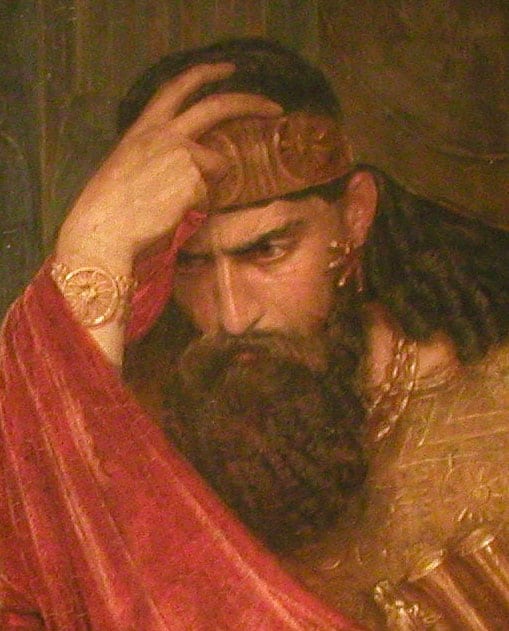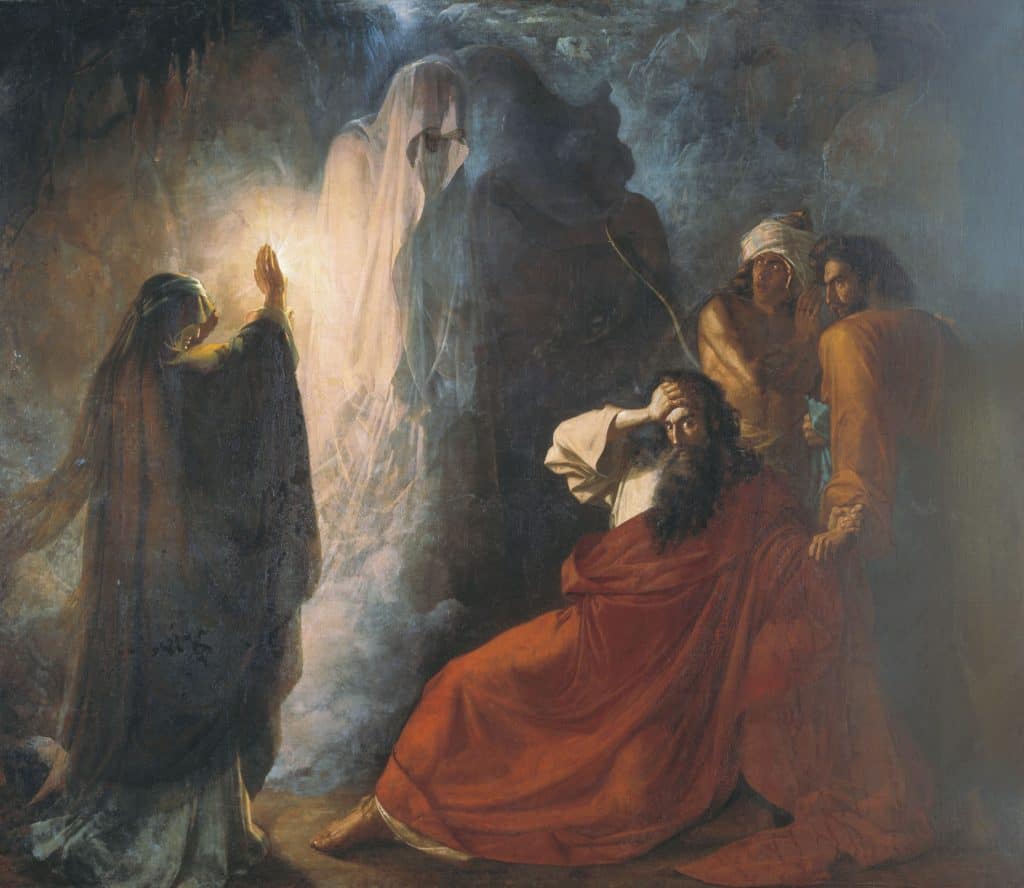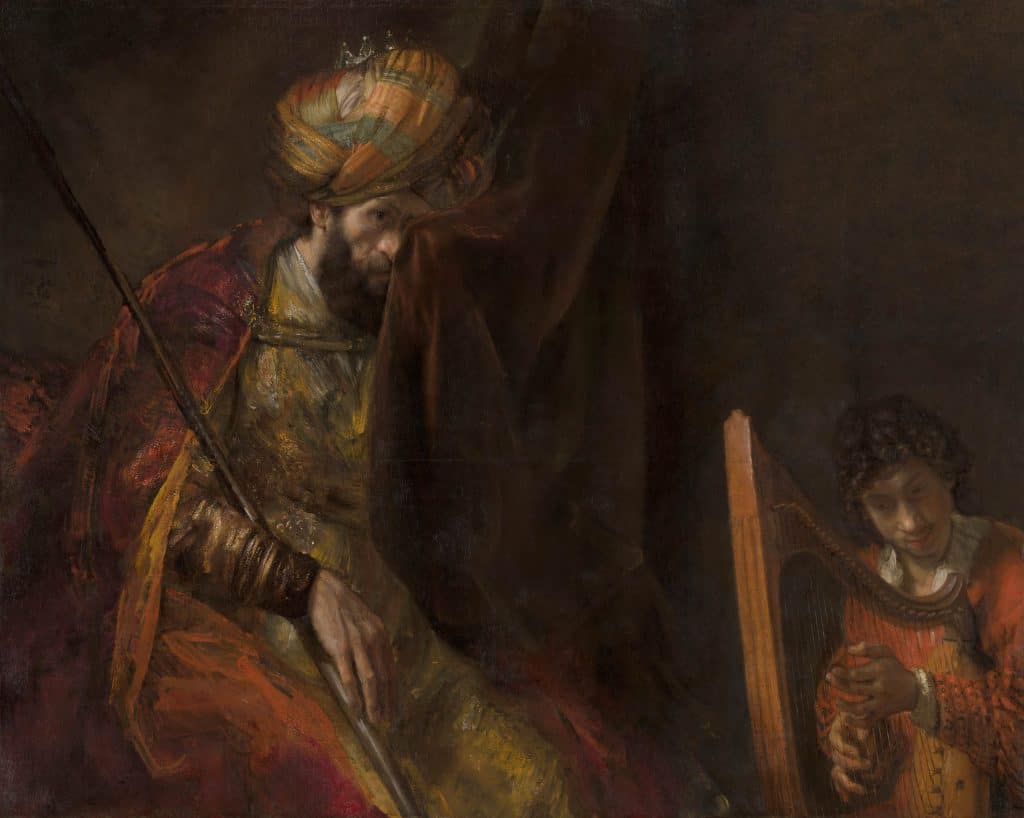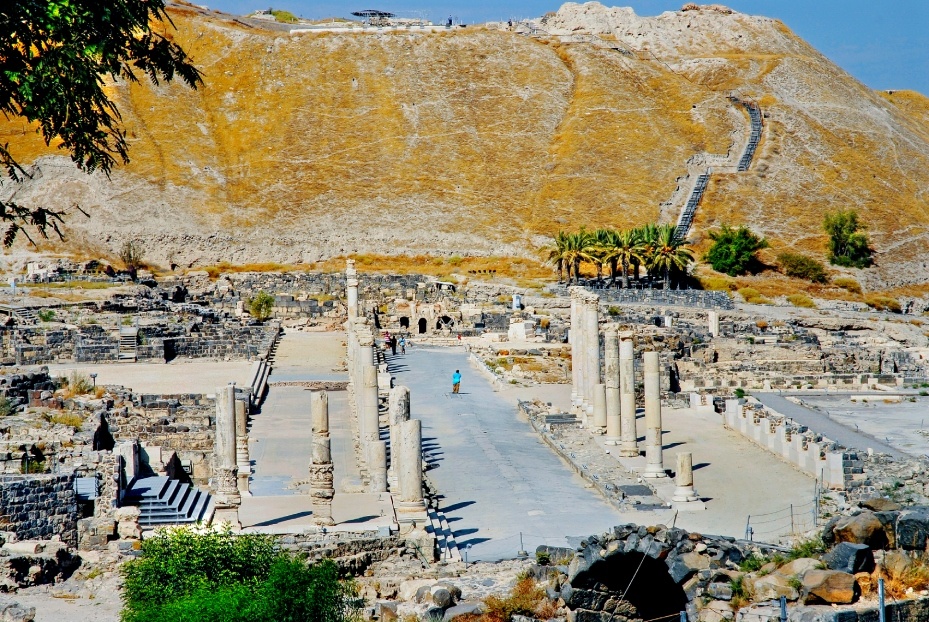King Saul was the first king of Israel, who reigned in the 11th century BC. He was anointed by the prophet Samuel and led Israel for approximately 40 years. Saul’s story is one of the great victories and tragic failures, and his reign marked an important period in the history of the Israelites.

Who Was King Saul?
Saul was a man of humble beginnings, hailing from the tribe of Benjamin. He was tall and handsome, with a commanding presence that impressed those around him. This impressive stature led Samuel to anoint him as king, as the prophet believed that Saul was the man chosen by God to lead the Israelites.
Saul’s early reign was marked by significant military victories against Israel’s enemies, particularly against the Philistines. However, as his reign continued, his leadership became increasingly erratic and unstable. He struggled to maintain the loyalty of his subjects and was prone to violent outbursts and irrational decisions.

King Saul Disobeys God’s Command
One of Saul’s most significant mistakes was disobeying God’s commands regarding the Amalekites. In 1 Samuel 15, God commanded Saul to destroy the Amalekites and all their possessions, sparing nothing. However, Saul spared their king, Agag, and the best of their livestock, a decision that would ultimately cost him his kingship. The prophet Samuel rebuked Saul for his disobedience, and God rejected him as king.
Saul’s later years were marked by deep depression and paranoia. He was plagued by an evil spirit and increasingly fearful of his perceived enemies, including David, who would eventually become his successor. Saul even attempted to kill David, who had become one of his most trusted warriors, and his son, Jonathan, who had remained loyal to David.

In the end, Saul died in battle against the Philistines, along with his sons Jonathan, Abinadab, and Malki-Shua. His death marked the end of an era for Israel and paved the way for David’s ascent to the throne.
King Saul remains an important figure in Jewish and Christian history despite his flaws and failures. His reign marked the beginning of the monarchy in Israel, and his story serves as a cautionary tale about the dangers of disobedience and the consequences of unchecked power.
David and Jonathan Become Close Friends
Saul offered his elder daughter Merav as a wife to the now-popular David after his victory over Goliath, but David demurred. David distinguishes himself in the Philistine wars. Upon David’s return from battle, the women praise him in song: “Saul has slain his thousands and David his tens of thousands,” implying that David is the more incredible warrior. King Saul fears David’s growing popularity and henceforth views him as a rival to the throne.
Saul’s son Jonathan and David become close friends. Jonathan recognizes David as the rightful king and “made a covenant with David because he loved him as his own soul.” Jonathan even gives David his military clothes, symbolizing David’s position as successor to Saul.

Saul Chases David
On two occasions, Saul threw a spear at David as he played the harp for Saul. David becomes increasingly successful, and Saul becomes increasingly resentful. Now Saul actively plots against David. Saul offered his other daughter, Michal, marriage to David. David initially rejects this offer also, claiming he is too poor. King Saul offers to accept a bride price of 100 Philistine foreskins, intending that David die in the attempt. Instead, David obtains 200 foreskins and is consequently married to Michal.

Jonathan arranges a short-lived reconciliation between Saul and David, and for a while, David served Saul “as in times past” (1 Samuel 19:1–7) until “the distressing spirit from the Lord” re-appeared. Saul sends assassins in the night, but Michal helps him escape, tricking them by placing a household idol in his bed. David flees to Jonathan, who arranges a meeting with his father. While dining with Saul, Jonathan explains David’s absence, saying he has been called away to his brothers.
But Saul sees through the ruse and reprimands Jonathan for protecting David, warning him that his love of David will cost him the kingdom, furiously throwing a spear at him. Jonathan meets with David the next day and tells him about Saul’s intent. The two friends say their goodbyes, and David flees into the countryside. Saul later marries Michal to another man.

Battle of Gilboa and the Death of King Saul
The Philistines make war again, assembling at Shunem, and Saul leads his army to face them at Mount Gilboa. Before the battle, he consults a medium or witch at Endor. The medium, unaware of his identity, reminds him that the king has made witchcraft a capital offense, but he assures her that Saul will not harm her.
She conjures the spirit of the prophet Samuel, who, before his death, had prophesied that he would lose the kingdom. Samuel tells him that God has entirely rejected him, will no longer hear his prayers, has given the kingdom to David, and that the next day he will lose both the battle and his life. Saul collapses in fear, and the medium restores him with food in anticipation of the next day’s battle.

The Books of Samuel give conflicting accounts of Saul’s death. In 1 Samuel and a parallel account in 1 Chronicles 10, the defeated Israelites flee from the enemy, and Saul asks his armor-bearer to kill him, but the armor-bearer refuses, so Saul falls upon his sword. In 2 Samuel, an Amalekite tells David he found Saul leaning on his spear after the battle and delivered the coup de grâce; David has the Amalekite put to death for having killed the Lord’s anointed king.
The Philistines are Victorius and Take Saul’s Body
The victorious Philistines recovered Saul’s body and those of his three sons who also died in the battle, decapitated them, and displayed them on the wall of Beth-shan. They display Saul’s armor in the temple of Ashtaroth (an Ascalonian temple of the Canaanites). But at night, the inhabitants of Jabesh-Gilead retrieve the bodies for cremation and burial (1 Samuel 31:8–13. Later, David takes the bones of Saul and his son Jonathan and buries them in Zela, in his father’s tomb (2 Samuel 21:12–14). The account in 1 Chronicle summarises that Saul died for his unfaithfulness, which he had committed against the Lord because he did not keep the word of the Lord and also because he consulted a medium for guidance.

